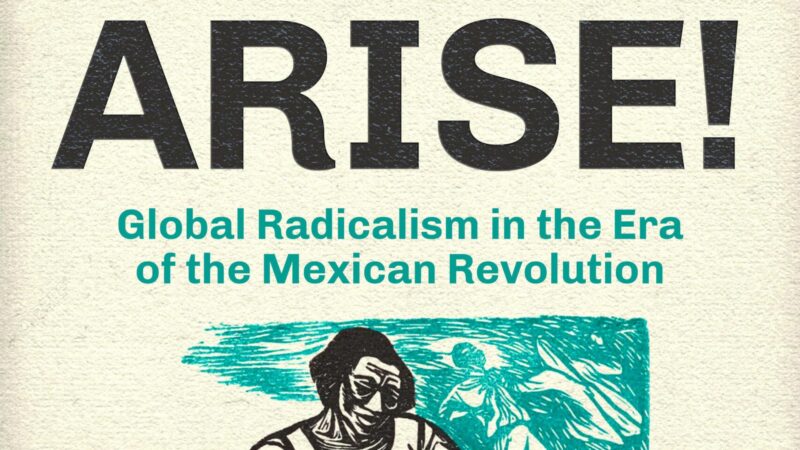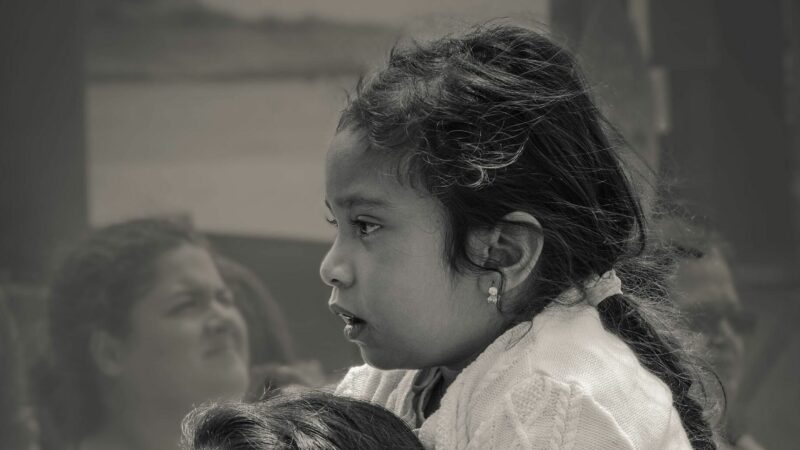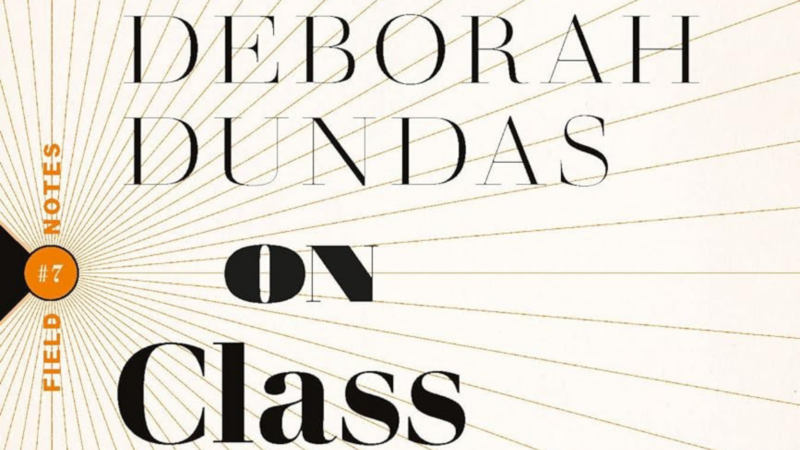A Conversation with Winston Smith
As a young black intellectual in Toronto, I eagerly explored various avenues of knowledge after leaving the monotony of Montréal behind. The Third World Bookshop became a pivotal hub for me, where I first encountered the richness of black radical thought outside traditional academia. Alongside studying under Ato Sekyi-Otu at York University, I was drawn to the vibrant community of independent scholars, among whom Winston Smith shone brightly. Hosting the “Expandable Language” radio show on CKLN, Winston seamlessly merged critical thinking with music and performance, leaving a lasting impression on me.
Although I never actively sought a meeting with Winston, his reputation as a scholar and proprietor of a renowned cultural studies bookstore, Writers & Co., preceded him. This bookstore served as a sanctuary for intellectuals of all backgrounds, including myself. Our eventual encounter marked the beginning of a transformative dialogue with a figure whose insights continue to shape my intellectual journey.
Winston’s ability to navigate the complexities of our evolving world, coupled with his commitment to independent thought, reaffirmed his status as a beacon for scholars like myself. Our overdue conversation underscored the importance of his influence in shaping my identity and aspirations within the realm of independent ideas.
[The interview transcript has been lightly edited for publication.]
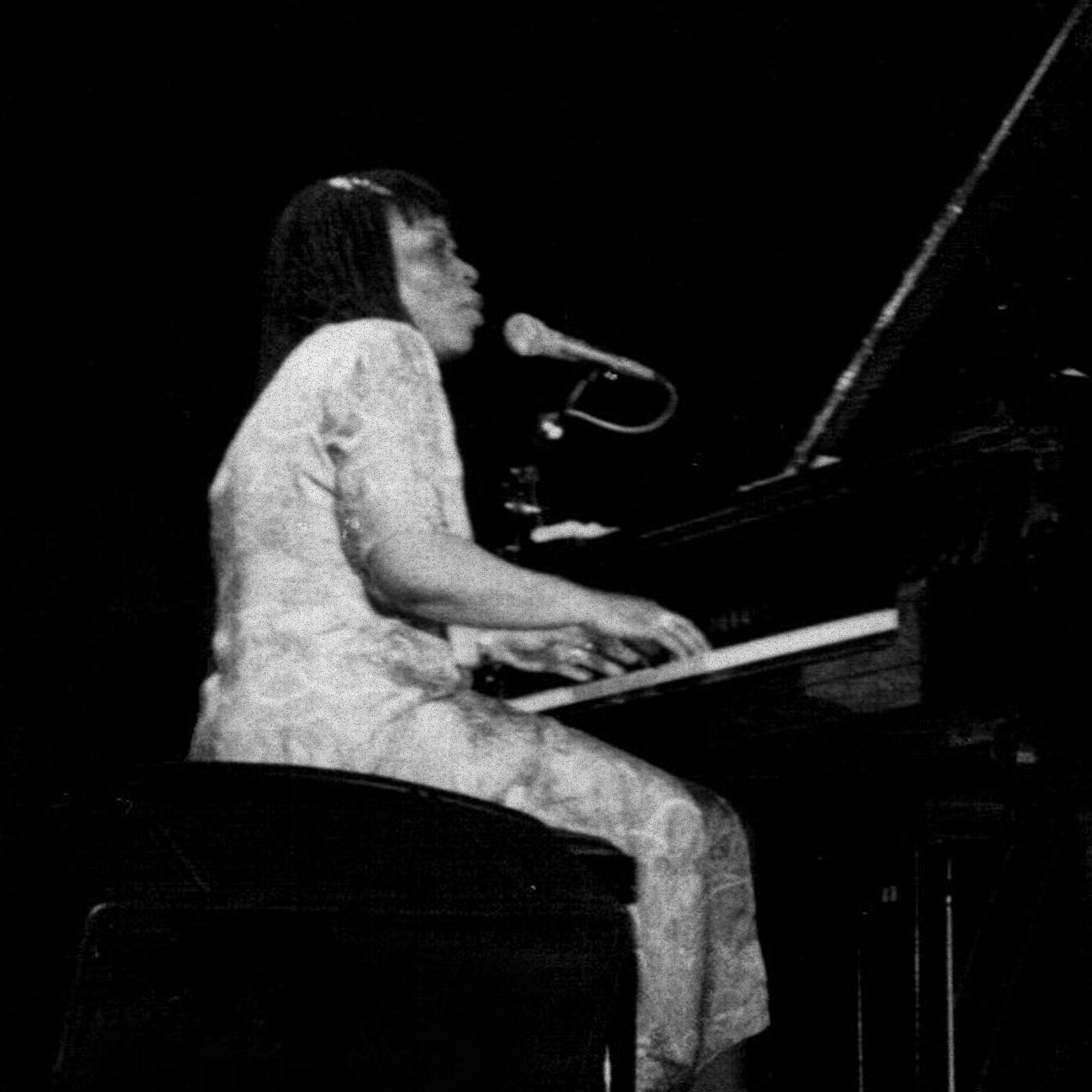
James: Any thoughts on the notion of jazz as a form of fugitive literature? Does this resonate with you? How do you perceive it in a general sense? Is it tied to specific elements like radio or particular jazz musicians? Let’s discuss the article shortly, but first, how would you generally respond to this idea?
Winston: Well, fugitivity for me means various kinds of things, and definitely when we think a little bit about jazz, we’re looking at music that has always been, to some extent, a very tricky area. It’s one that is hard to pin down. What’s very important is its capacity to adapt more to change, because it has always been put under a certain degree of pressure, of scrutiny… but also by the very nature of the music and musicians, because of its performance ethos, you see this idea of musicians always being challenged.
To quote someone like Stanley Crouch, who was a little bit conservative but still quite astute in some ways around improvisation, the jazz musician is always someone in danger. Crouch dealt with the notion of improvisation, which was a major challenge for the creative jazz musician. Improvisation is so much a part of the jazz ethos, especially because it leads to the liberation of the soloist. The creation of a particular sense of voice and authority in the music requires the person to be always wary, to be always under pressure, to be always inventive, to always mistrust any notions of stability or sameness—and the changes had to be embraced in that way. I think this harmonizes very much with this idea of “fugitivity.” To some degree it is an essential, fundamental part of the music itself.
James: The thing I was coming to was where we are now. It seems like normativity is increasingly forced on us in more and more excruciating ways. I’m not going to claim it’s the most extreme moment in human history, but when discussing improvisation and the present radical moment of mistrust and sameness, I’d ask: “Isn’t it crucial, perhaps more than ever in our current historical moment, for jazz to serve as a mode of expression or a grammar of how we can differently interface with each other?”
Winston: I agree. That’s one of the things I think about the music and certainly about the broad African Atlantic tradition that underpins jazz. You brought up this notion of neoliberalism previously. And of course, we’re living increasingly in these times where, as you talked about normativity, [we have] this sense that to some degree certain issues of sameness, of repetition, of staying with the same systems that have been imposed are often being made into some sort of broader ideal.
I think with jazz musicians and jazz itself, you have a music that interrogates, that asks very difficult questions about these sorts of acceptable positions. Partly because it’s a music that was born under unacceptable circumstances for some, being created by people who had been brutalized, who had suffered enslavement, who had come out of Jim Crow positions, being excluded and segregated from mainstream society, and who many times were being disrespected… and who also had their art quite often forcibly taken from them, imitated, promoted as being the work of others, and so on.
[This situation] required jazz musicians to consistently be aware of the fact that for them to follow much of what was considered a normative standard, every day it would be problematic and it would often lead them into some sort of captivity. It’s a little bit like Frederick Douglass’s 1845 Narrative, his first slave narrative, where he talks about the Underground Railroad and this notion of the fugitive process, but he is very wary.
Douglass talks about the fact that it was important for escaped slaves who were intending to escape to be more judicious in talking about or spreading the word with regard to the plans that they might have, only because they would reveal themselves and they would betray themselves. And he would say later on that rather than [calling it] the so-called Underground Railroad, we could call it the “upper-ground railroad,” because if you’d spoken about it too obviously, there would be no benefit of secrecy. You would close off the options for others who might be able to make use of that notion of escape or flight.
James: Interesting, this idea of the “secret,” and also notions of the private and public. Are you familiar with the work of Byung-Chul Han and his book Psychopolitics, which many say really describes the “soul” and the spirit of neoliberalism? He talks about the loss of the private in society, the loss of distance. I’m riffing off your thoughts here, considering the significance of secrecy in our society and how we still value keeping certain aspects of ourselves private, even in the age of Instagram where we seemingly reveal everything.
Jazz seems to grasp this concept well, navigating between secrecy and transparency, between showing and concealing. In the music itself, there’s a constant interplay of revealing everything and then hiding it again—moments of extreme cacophony followed by dialing it back—the literal breaks. Jazz embodies the idea of leading a life between the private and the public, rather than choosing one extreme over the other. Any thoughts on how secrecy intersects with jazz in this sense?
Winston: Oh, certainly, yeah. I think secrecy is absolutely a concern in particular ways and we see it in different ways. So [there’s] the notion of secrecy as disguise, as a sort of double voicing. A subversive approach is essential to jazz, and there are popular myths that accompany that as well. For example, if we think [about some of the] anecdotes around Louis Armstrong and his rise to a position of great prominence early on in his career… There were times when he was known in performance to play his trumpet with a towel slightly covering his hands, to hide the fingering to some degree.
Stories came up around that, saying Armstrong was conscious of people stealing his fingering techniques and that he used this as a form of disguise—but of course that also misses another very important aspect of it, which is that Armstrong himself knew very well that the fingering would really have been [only] one part of the process. There was [also] his capacity to form sound through his mouthpiece, his embouchure, which was something nobody was going to be able to cut, capture or cover in that way.
There are many other aspects that come into play, but when it comes to musicians and disguise, masking, hiding all of these things, they’re very important aspects in the music that we’ve always seen. For example, when we think about the notion of improvisation, there’s a bit of a cliché that comes with that. Many people have assumed that improvisation is a lesser art, partly because there is a sense that the musicians are making these things up in their head and that they have an inability to read and write music and to think about it on a deeper level.
[…] In composition, over time, where there was room for improvisation, we started to see composers writing their cadenzas and controlling [much of] what they thought the musicians should be playing. But we know that with jazz musicians, the whole idea of improvisation is a much more elastic idea and that the musicians had a fund of knowledge.
They have to bring to the process not only knowledge of the sort of musical techniques that are necessary, but also the melodies, the harmonies, the rhythms, the structures—and they have to be able to execute things in different contexts depending on the situation that they might find themselves in.
Winston Smith
[They had to adapt to] the quality of the music, the [skill] of their fellow musicians, the quality of the space that they find themselves in. So [improvisation] required a capaciousness of thinking, a broader way of understanding these things. There’s this hiding, disguising, distracting kind of idea around jazz. But I think these are things that tie to the broader notion of black survival in the African Atlantic context as well.
James: One of the things that comes up right away for me is this idea of craft. And I’m thinking of Richard Sennett and this idea of what the “craftsman” is. Maybe we can speak a little bit about that and then [dig into] your article from many years ago, because that’s really the article for me about craft. What is craft for a jazz musician? What is craft right now? Are we losing a sense of craft in our present society?
Winston: Yeah. It’s a tricky, difficult question. When we’re thinking about jazz musicians, there’s an ongoing discourse that has been there for a very long time, that is concerned with this notion of what is jazz and just what constitutes the ability to play jazz. What does one have to have?
This has been a discussion for many years. Increasingly, jazz musicians are complaining that the spaces are being restricted and are being dried up in many ways. It’s becoming more difficult for jazz musicians to find broader spaces for expression, even though there’s been perhaps an expansion of some of the narrower, more mainstream spaces for certain kinds of music. Even though we’ve seen the expansion of music schools that teach certain aspects of the tradition, there’s a feeling that some of the spirit has been taken out of the whole idea of what we need, and I think that aspect is something that is ongoing.
I’m not sure we’ve been able to move past [these issues] in any way, and certainly craft is an interesting situation because for a very long time, the whole idea of being a jazz musician was really to exist on the outside in so many ways. You were being restricted from many of the more standard places and venues. You weren’t always being welcomed into concert halls. You weren’t being welcomed into music schools or universities or these types of institutions. There was a sense of having to create spaces for yourself by finding alternative venues and then also developing technical resources that allowed you to be able to work in very interesting ways.
Kenny Barron, the great jazz pianist, once talked about one of the things that’s most admirable about what jazz musicians can do, for example, with the piano: because so many of them were forced to play in venues where the instrument was out of tune, [missing some] functioning keys, located in rooms with poor acoustics and so on, they had to almost create a new way of understanding the limitations of the instrument, which musicians in a more privileged position might not have had to think about…
Cecil Taylor, talking about the jazz musician, would say that each man is really his own sort of academy in that way, and each carries with him a fund of knowledge that he has to bring into the arena. [This perspective is not something we can assume is part of] a broader understanding. We can’t take for granted that it is generally recognized. Jazz musicians have the responsibility not only of performing, but also of simultaneously teaching how to understand and how to appreciate their craft.
James: Interesting, this idea of creativity has me thinking about the idea of iteration. The idea of the generic… Are you Caribbean, by the way?
Winston: Yes, I was born in Jamaica. I came here when I was very young.
James: In the Caribbean, particularly in Trinidad, during carnival there’s the concept of “Mas masquerade,” where one person embodies their own unique brand. When Cecil Taylor mentions each person being their own academy, it evokes thoughts of Europe losing a tradition of radical solo masquerade, seen in both carnival and everyday life. In the past, standout individuals in old societies embodied radical experimentation in the streets, akin to guilds where artists apprenticed toward perfecting their craft. This era of elaborating singular ideas, in the context of what we are talking about, seems to have faded in Europe, while it likely still exists across Africa. Has Europe lost this radical individual gesture, focused on experimental forms of individuation?
Winston: I know what you’re saying. I can’t speak with great expertise about things that are going on all over Europe. However, one of the benefits and probably one of the problems that European musicians have run into at times, [while one can admire ] certain European countries and their efforts to support their creative artists in particular ways, [is that] a kind of sameness is engendered, partly because in order for the musicians to survive they have to fit into certain boxes, and some of the individuality is taken away.
It’s interesting. A few years ago, I was talking to a couple of musicians in the Netherlands about the fact that many Dutch musicians, even though they had a fairly good and energetic scene in Amsterdam and Rotterdam and so on, found that they’d lost some of the energy they had early on. People had gotten into particular forms and structures that were very repetitive and limited… They had more freedom at times when they left to go to the United States or to Canada or wherever, just because they felt some of these audiences were not quite as familiar with their [music] and they could then do something new…
Even if we think of Berlin and their very famous Free Music Productions collective, [in] reality, a lot in Berlin has changed, apparently. I was talking to someone recently who said that so much of the support for the creative impulses that used to exist there [has now been] regularized to the point where [many musicians are] no longer attracted to the city, looking for that kind of creative freedom. They feel that much of the freedom has been taken away.
James: Yeah, there are some independent people—wealthy people—who are creating their own spaces now. They just built almost like a pyramid in the middle of Berlin. And the work that they’re presenting is unbelievable. I guess this also brings me to your essay, “Let’s Call This: Race, Writing and Difference in Jazz” because of this idea of “naming” or “calling” you speak about, which you see as native to jazz. You speak about Thelonious Monk. When I think of the idiom, I think of literally naming. It seems that these are the grammars of an activation against the idiom of neoliberalism that goes beyond being framed.
Winston: Well, yeah, they’re definitely different things. The Thelonious Monk part of it was a composition called “Let’s Call This.” And when we think about even the titling of a composition for a jazz musician, that phrase can mean different things… like, let’s call this specific tune if we’re going to be playing it in performance; [or] even the idea of potentially naming [a piece], you know: Let’s call this “…,” and then we can name [it] as a certain type of thing.
[This approach is] also underpinned a little bit by Amiri Baraka’s idea of conservative arbiters and musicians in jazz, and how one area of the music, swing, suffered from those who wanted to move it from verb to noun. This imposed a static quality on a vital form. Monk’s intervention reclaimed the motion and fugitivity in the manner expressed by Nathaniel Mackey’s work, which engaged with Baraka’s idea, “Other: from noun to verb.” Instead of having something that remains in a static mode, what we start to see are always possibilities. We see the things that can be opened up… because, as Baraka was arguing, as jazz was adopted by these mainstream tastemakers and people who wanted to codify it in a very particular way, they were limiting it. And they were trying to pin it down and make it into something that really would rob it of its spirit in that way.
And so with Thelonious Monk, [in that essay] I was trying to talk about this very important factor—and in the same essay, I bring up Anthony Braxton and Braxton’s idea, fundamentally, of not naming pieces in any conventional way—of almost forcing people to think a little bit differently. This partly tied to the broader issue of “invention of the self” to some degree. We see this fashioning of the self, which is key, and in terms of what you were bringing up with fugitivity, there are notions of African Atlantic mobility.
We see this in so many ways where there is the notion of not staying in one place, not remaining still, and constantly having to shift in terms of thinking about ideas of identity. And so on. Think of Prince, when he decided that he was going to go back on the conventions of naming… and being called “The Artist Formerly Known As Prince.” All of these things are very important.
And then there is the phenomenological aspect of all this to some degree. We see this very strongly in a lot of creativity with these [jazz] artists… For example, the very particular idea of “calling” something and the “speech” that’s implied in some areas of jazz performance. Ingrid Monson will focus on this [complex communication], referring to “[jazz musicians’ multiple subject] positions” when they get together, and when they’re working in a certain type of way, how they are “talking about” and “saying something.” Of course, they’re saying something, because embedded underneath is a particular kind of meta-language, and it’s very important for the relationship [between jazz artists].
You know when you’re saying something? When you reach the very particular area in the music that has its own depths and is beyond speech to some degree, but yet reflects it. Again in that essay, one of the people I’m deeply fond of is Nathaniel Mackey. Mackey will compare that space in time in flamenco that’s called duende, where that deep sort of communication takes over and the listener is unable to really talk about it and describe it in conventional ways. It’s ineffable.
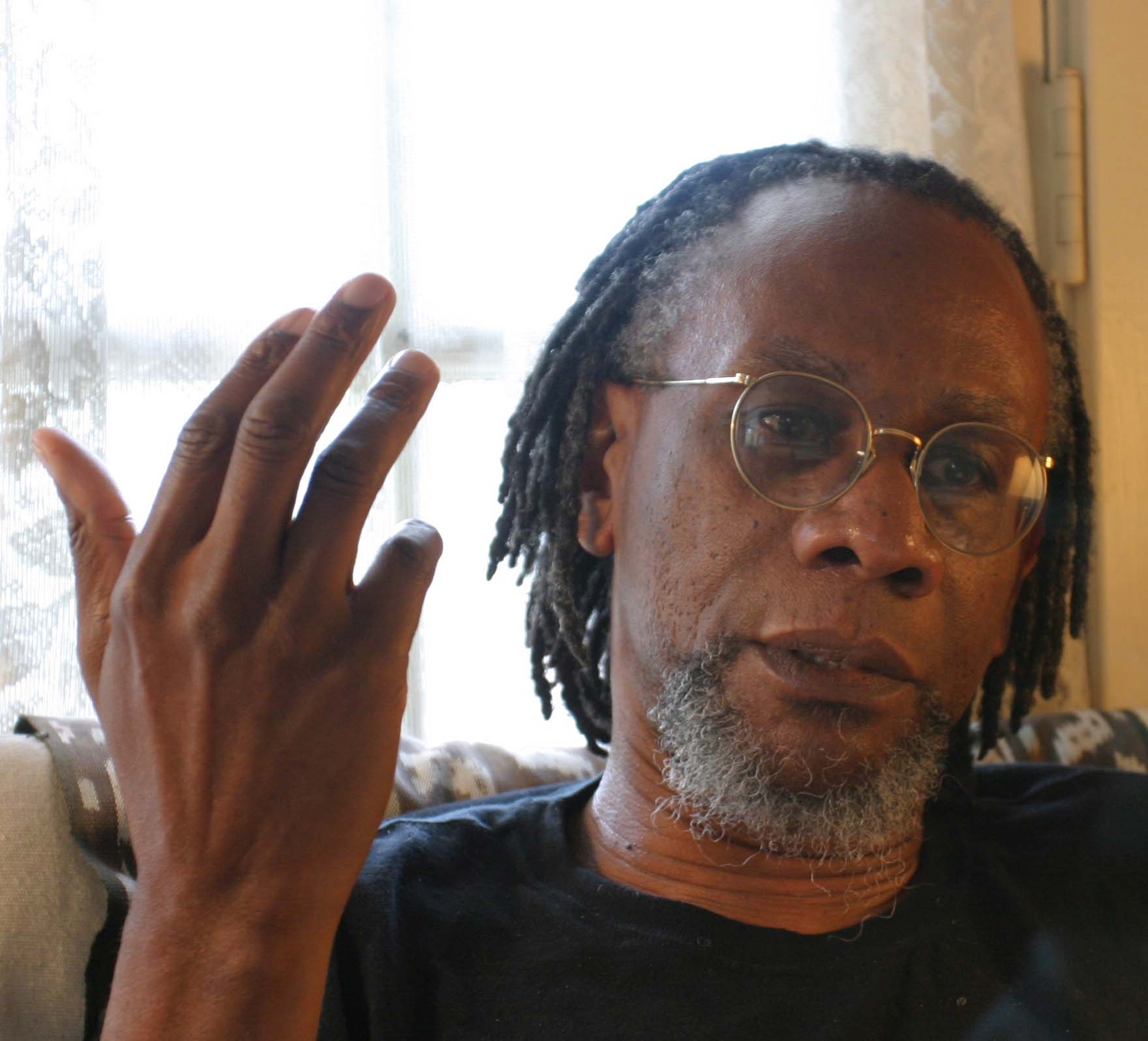
James: Talking with a certain jazz musician who loves the idea of cliché—Miles Davis’ “So what?” just seems so simple as a phrase—he says to me, “Clichés are the best thing to develop an idea.” One of the things that I’ve always been interested in is this idea of concept making. I studied with Édouard Glissant, who was really pushing us to create our own original concepts. When I think of concepts, I think of a “neologism.” When we start talking about expressions like “grooving,” “salt peanuts” and ”carving the bird” that have come up in jazz, [this kind of] concept-making in jazz seems to be a huge part of it.
Winston: Well, yeah, certainly in that piece (“So What”), part of it has to do with bebop. And what was very interesting was that because these musicians had made a very conscious effort to distinguish what they were doing from some of the things that were going around them, and jazz had evolved from its early forms through its swing forms and so on… there was a kind of intellectual effort to place the music into a different frame. It just wasn’t going to be, you know, dance music or background music.
People, in that sense, wanted to be taken seriously as artists and what was interesting was that even though many of these musicians were very knowledgeable, very thoughtful about their art, they also knew to some extent [that] they didn’t want to be trapped in this artificial idea that they were kind of dismissing the broader links to the society around them. They also had a lot of humour and a lot of subversiveness with that humour.
When we think about even the naming of the [jazz] pieces, the wit and the creativity that they brought to it [is clearly evident]. For instance, we think of Charlie Parker because he had very particular profile and was admired by so many musicians. In many ways it was important for them to come up with certain kinds of names they would confer on him to signify how important he was, and [create] a kind of witty double speech. Even with a term like “anthropology,” a very particular kind of scientific study of human beings, they wanted to play with it, saying, “We’re going to simulate this broader evolutionary pattern. We’re going to think about jazz, jazz musicians and the growth of the jazz art in that way.”
This is a really essential thing in that sense, and part of their vital issue of creating their own space. How they understood that space is really important. This is a cross-section, of course, for black people in the Americas, this notion of “naming” and “re-naming”; they had gone through so many different layers of “naming” and “re-naming,” redefining different senses of themselves. Whether they had come from particular places, say, in the African continent and mixed and joined with other people from the other side of the continent, whether they had interactions with other groups they had come in contact with—slave masters, Indigenous people—they had to refashion themselves in [a myriad of] ways.
You bring up the Caribbean, and we think about the Caribbean in so many ways as a particular kind of indigeneity. For instance, while we don’t have the conventional survival of some of the Indigenous groups that had inhabited the islands for thousands of years, we have survivals that remain as part and parcel of Caribbean identities in various ways.
And we have very conscious efforts by those who come from the Caribbean to indigenize their cultures in a variety of ways, so they know that the people who were there before them are part of them, really… Whether [these earlier people] physically exist anymore or not, they exist in all kinds of forms inside of the places.
This is an essential thing. It’s a key factor [in understanding why], when we start to think about jazz musicians who became conscious of trying to create a particular relationship with other parts of their identities, “naming” became important.
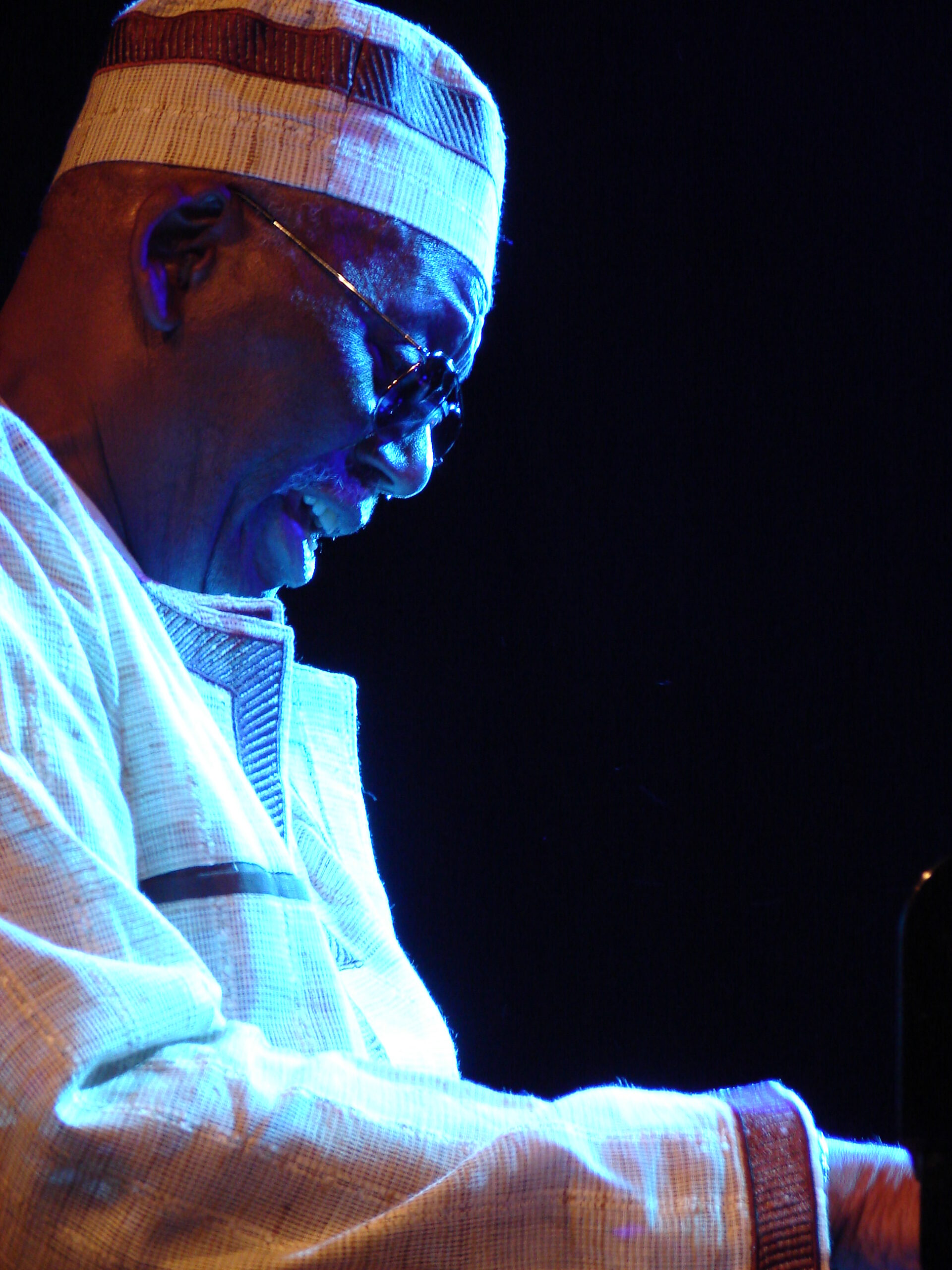
One musician, Randy Weston, was really important to me for a long time. He had this Caribbean Panamanian heritage within the African American framework, but with great interest and dedication to the African continent, to the point where he moved there and lived there for a number of years. He was connected to not only the West African heritage but also the North African heritage, spending years in Morocco. He was extremely taken with things like Gnawa music and working with those particular sounds, beats and rhythms.
Randy Weston became one of the great conduits through which so many of these things passed into more popular forms in the West, so-called World Music and things of this type. The naming of his tunes was very important to him. For instance, a classic piece of his like “Blue Moses” used [that name] because, for the Gnawa, blue is the colour of Moses; they use it in their rituals. This opened up people’s ideas about the relationship between the broader African Atlantic [cultures] and the connections to the Americas.
James: I’m thinking of Anthony Braxton and the idea of the ideogram as seen in your essay. I’m also thinking of Cooper Moore and Charles Gayle as devoutly complex characters and musicians with approaches that are utterly original—really going against the grain.
Winston: I spent some time with Cooper Moore once years ago, and he was a wonderful guy, tremendous energy and drive. As you said, he’s a man of many parts and quite wonderful in this way.
I have a great love of Charles Gayle, but years ago there was a controversy at the Guelph Jazz Festival. Charles had played at Guelph and I loved his music, but he also had this other aspect of him [that would] take over at certain times. At that particular gig, out came this particular [sermon]. He talked about morality and sexual politics, and his vision of things, often reflecting what seemed to be very conservative Christian values.
The interesting notion of fashioning and self-fashioning is something that we’re always seeing within these creative musicians. Whether we want to accept them, whether we want to believe in them or whether they’re essential to our understanding of the music or not, that’s always something that’s debatable. What’s interesting is the fact that for many of these players, there are very creative areas that are essential to them. And the difficulties in grappling with these things are sometimes where we find their creative tension.
Charles Mingus is a very great example. Mingus was a brilliant and great player and composer but difficult to deal with. When you talk to his musicians, they’ll say yeah, Mingus was hard. There were times when you were scared for your life when you played with him because he would just lose it all of a sudden. He didn’t have control, but at the very same time, he would be very sweet and gentle and kind and giving and generous in all kinds of ways.
Part of it was that Mingus took himself very seriously and people took him seriously enough; but sometimes he was hard on the musicians because he thought they weren’t taking themselves seriously.
You had to work and focus and be right inside of things.
Sort of like Sun Ra, who was a massive disciplinarian. You had to work and focus and be right inside of things. When a musician played something he didn’t like or [that] was a little off-key or whatever, he would spend the rest of the time focused on them like an old schoolmaster.
For Sun Ra, it was about having a deep professionalism. It was important that you did these things properly, and yet he also knew that he had either very dedicated listeners and followers or those kind of people who thought he was some kind of madman or strange individual. He, too, was a fascinating figure in so many ways. When we talk about this notion of “naming” and “invention” and “calling,” it’s interesting because with some of the more recent scholarship that’s been focused around Afro-futurism, Sun Ra is a central player there.
In many ways, Sun Ra created a universe3 for himself, an extraordinary universe, vital to his whole creative impact. A very complex figure in so many different ways. He is somebody with whom we still have to come to terms, because he was a man of so many different parts and layers. He leaves a very rich legacy that still needs to be explored.
James: Winding down now. You have been a bit of an enigma for me [ever since I first] heard your name. I listened to your radio show in the ’90s. Could you talk [a little] about the show?
Winston: For many years I did a show on CKLN, which was part of Ryerson University. (Now it is called Toronto Metropolitan University.) It was a community radio station. CKLN was a great place because it allowed for great racial, cultural, sexual and gender diversity, and you had international programmers, international music, news, politics. A great way of interacting and reaching out to a range of different listeners.
I became involved with CKLN in two ways. Before I had my jazz program, I had a program called “Intents and Purposes.” It was named after one of the great albums of the [outstanding] jazz musician, Bill Dixon. I was approached to host the Tuesday morning program called “Expandable Language.” The name is taken from a great composition and album by Oliver Lake and also a poem by Thulani Davis. (Thulani Davis, who wrote the libretto for opera X, The Life and Times of Malcolm X, is the cousin of Anthony Davis, the composer of the opera and a fantastic jazz pianist.) The piece was really very important to the show, partly because one of the themes of my show was to feature musicians like Oliver Lake, Hamiet Bluiett and Julius Hemphill from the Black Artist Group (BAG) in Saint Louis4 and the parallel group in Chicago, the Association for the Advancement of Creative Musicians (AACM).
For me, it was really important to [showcase] those musicians and the musics that came from those particular groups. As much as I played the tradition, I was certainly focused a little bit more on the so-called avant-garde and I wanted to give room and space to those musicians so that the earlier generation of AACM musicians such as Muhal Richard Abrams5 [would be heard along with] the Art Ensemble of Chicago guys and the younger generation that had come up with people like Kahil El’Zabar,6 Ernest Khabeer Dawkins, the Ethnic Heritage Ensemble and the Ritual Trio.
[I was committed to] giving a lot of focus there and to important players that I really thought were neglected. I loved playing Andrew Hill—a lot of people really didn’t know enough about Hill’s genius and brilliance. I wanted to play these people, and I wanted to give a lot of time to the work of Cecil Taylor. Inheritors of his tradition such as David S. Ware and his groups, many of which included William Parker and Matthew Shipp, were very important to my show as well, so I tried to spend a lot of time playing them.
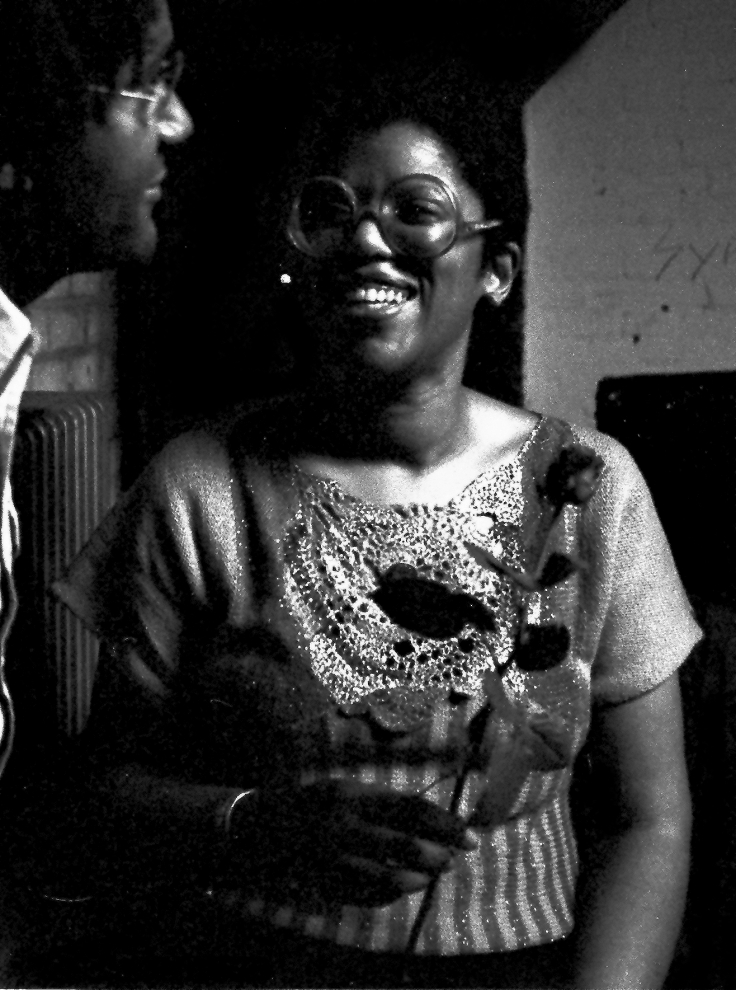
If you listened to [various] so-called jazz shows, they would play lots of great players, fantastic players, whether we’re talking about great singers like Billie Holiday, Sarah Vaughan [or others]. But many were not playing Jeannie Lee,7 for instance. She did stuff with William Parker, Cecil Taylor, Mal Waldron. What she brought [in terms of] experimenting with voice was so important. So when we played her, we would also try to play her along with somebody as remarkable as she was. In her later career, she started to get taken more seriously.
This show was meant to give voice to certain types of musicians, certain types of music. I wanted it to be a show that testified to a little bit of what I thought to be the kind of deeper embedded speech communities of jazz.
Blues really was a kind of ethos—and remains the big bedrock—of so many things…and not just the literal music that people think of as Blues, but the whole spirit of what blues encompasses when we talk about the sort of African American tradition in that way.
Winston Smith
That [spirit] drove a lot of my show, “Expandable Language.” I was able to interview a number of musicians over the years, which was really quite wonderful. Everybody from Roscoe Mitchell and George Lewis to Kahil El’Zabar and Sonny Rollins.
James: Wow! I think we’ve got everything—more than enough! Thank you very much for your generosity and for giving me the opportunity to speak to you after knowing about your work for the last 30 years. Over this very special and vital moment [in history] in Toronto, you have been one of the key figures who has really opened up new ways of thinking, listening and feeling with your work. Thank you.
Winston Smith
Winston Smith hosted “Expandable Language,” an in-depth jazz program on CKLN Radio featuring avant-garde and experimental artists, from 1990 to 2000. Over the years, he has participated as presenter and interviewer in several jazz symposiums, including the Guelph Jazz Festival. He also co-owned Writers & Co., which was a literary bookstore in Toronto.
Winston currently teaches at Seneca Polytechnic in the Liberal Arts Transfer Program, more specifically courses in academic research and writing, and world literature. He also teaches courses that focus on liberation narratives in Black music, and race and resistance in Black sports history. He holds a degree in English and literary studies from the University of Toronto, and a graduate diploma from Exeter College, Oxford University, in English Literature.
References
- Winston Smith, “Let’s Call This: Race, Writing and Difference in Jazz,” in Public, 1990.
- NPR.org – Charles Gayle, the fierce saxophonist who created his own path, has died at 84
- An interesting parallel to this features Canadian-based artists Rajni Perera and Nep Sidhu, who have attempted to present the deep codes of the universe of Sun Ra in their artistic practice, particularly in an exhibition named “In the Realm of Lightning” that took place at the Patel Brown Gallery in Toronto in 2021.
- The Black Artists’ Group of St. Louis | BAG Creation Equals Movement
- Muhal Richard Abrams – Society for American Music; THE ART ENSEMBLE OF CHICAGO
- Another interesting parallel is that artist Nep Sidhu has been very involved in doing the album art for Kahil El’Zabar.
- William Parker’s Jeanne Lee Project – Vision Festival 2003


